High-achieving couples often bring the same energy to therapy that they bring to boardrooms and deadlines: determination to win. But relationships aren’t about winning, they’re about connection.
Couples therapy isn’t about keeping score. It’s about shifting from blame to understanding so your relationship can grow. For high performers, that shift means learning to trade efficiency for empathy, competition for collaboration, and “being right” for being real.
The Purpose of Couples Therapy
Many couples arrive in therapy hoping to prove a point or assign blame. But the real purpose is to explore patterns, not declare winners.
Therapy offers a safe space to slow down, notice dynamics, and shift from competition to collaboration. When each partner feels heard and understood, walls come down and empathy has room to grow. That mutual respect is the foundation for lasting change.
Breaking Patterns Together
Relationships often fall into the same cycles: criticism, withdrawal, or emotional shutdown. For high performers, these patterns often show up as:
- Efficiency over empathy: solving problems instead of listening.
- Calendar crowd-out: everything gets scheduled except the relationship.
- Polite avoidance: few fights, rising resentment, intimacy on autopilot.
- Pursue and withdraw: one pushes for answers, the other shuts down or dives into work.
High performers thrive on drive and problem-solving, but relationships require patience, presence, and vulnerability. Learning to pause before reacting is the relational equivalent of training for long-term performance.
Communication Over Correctness
At the heart of every thriving relationship is effective communication. This is often where high achievers hit friction. You may be used to giving presentations or managing teams, but communication at home requires a different muscle: listening without strategizing and responding without a performance filter.
Therapy teaches couples practical tools like:
- Active listening: mirror back before you reply.
- Soft start-ups: “I feel…” instead of “You always…”
- One-problem focus: solve what’s in front of you, not the whole history.
- Short and frequent check-ins: ten focused minutes often beat a marathon summit.
These skills reduce defensiveness, soften conflict, and strengthen trust.
Tools to Foster Connection
Your therapist may suggest practical ways to support your relationship between sessions. For high performers, tools that are simple, time-efficient, and repeatable make the difference:
- Daily two-by-two: two minutes each, one good thing and one hard thing. No fixing — just listening.
- Repair phrases: “Let me try that again” or “I see your point and I still feel…”
- Appreciation ratio: aim for five small thanks for every one critique.
- Signal word: a quick cue to pause a heated moment and revisit later.
- Weekly partnership meeting: 20 minutes for logistics, 10 for connection, 5 for appreciation, 5 for planning something fun.
Consistent use of these tools shifts your relationship from problem-focused to partnership-focused.
Embracing Shared Growth
High performers measure progress, but in relationships, the right metrics aren’t wins and losses. They look more like:
- How quickly you repair after conflict.
- How often you meet your partner’s bids for connection.
- How aligned you feel as a team when stress is high.
When both partners prioritize connection over correctness, your relationship becomes a place of resilience, support, and shared growth.
If you and your partner are high performers juggling demanding lives, therapy can help you protect your relationship from becoming another pressure point. Ready to transform conflict into connection? Born Counseling specializes in helping ambitious couples strengthen intimacy and thrive as a team.


